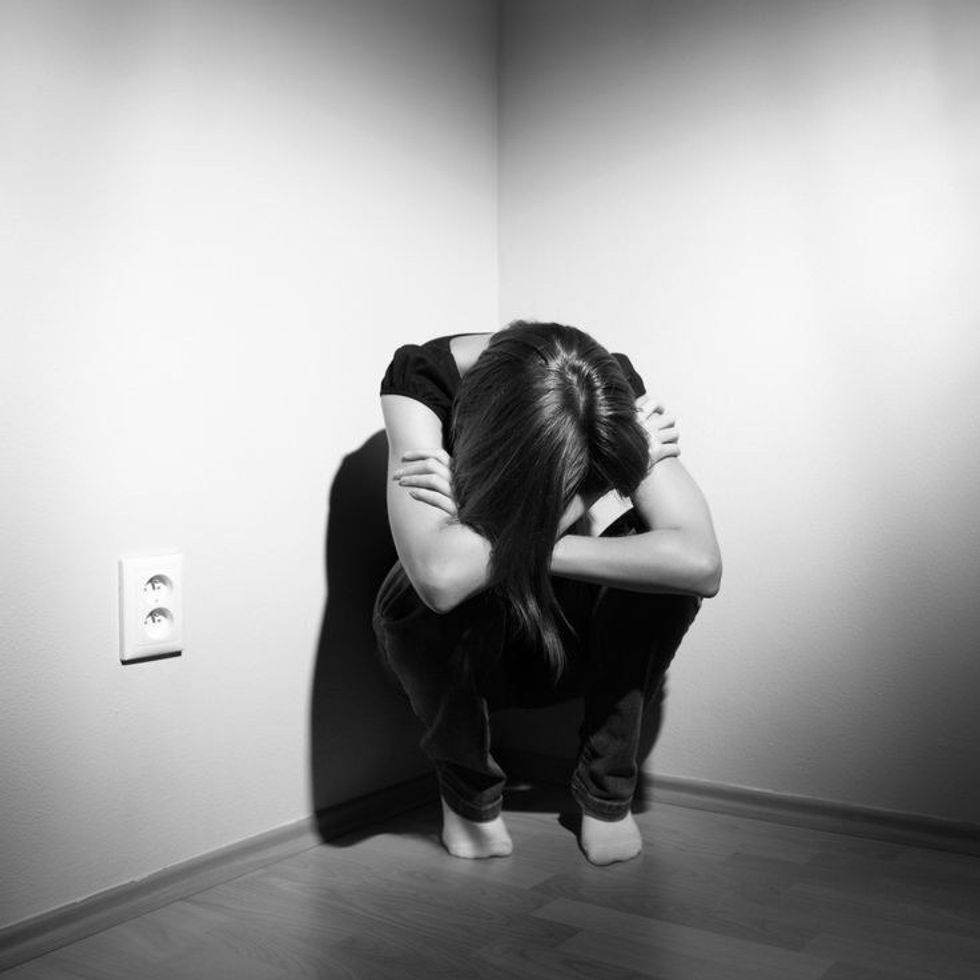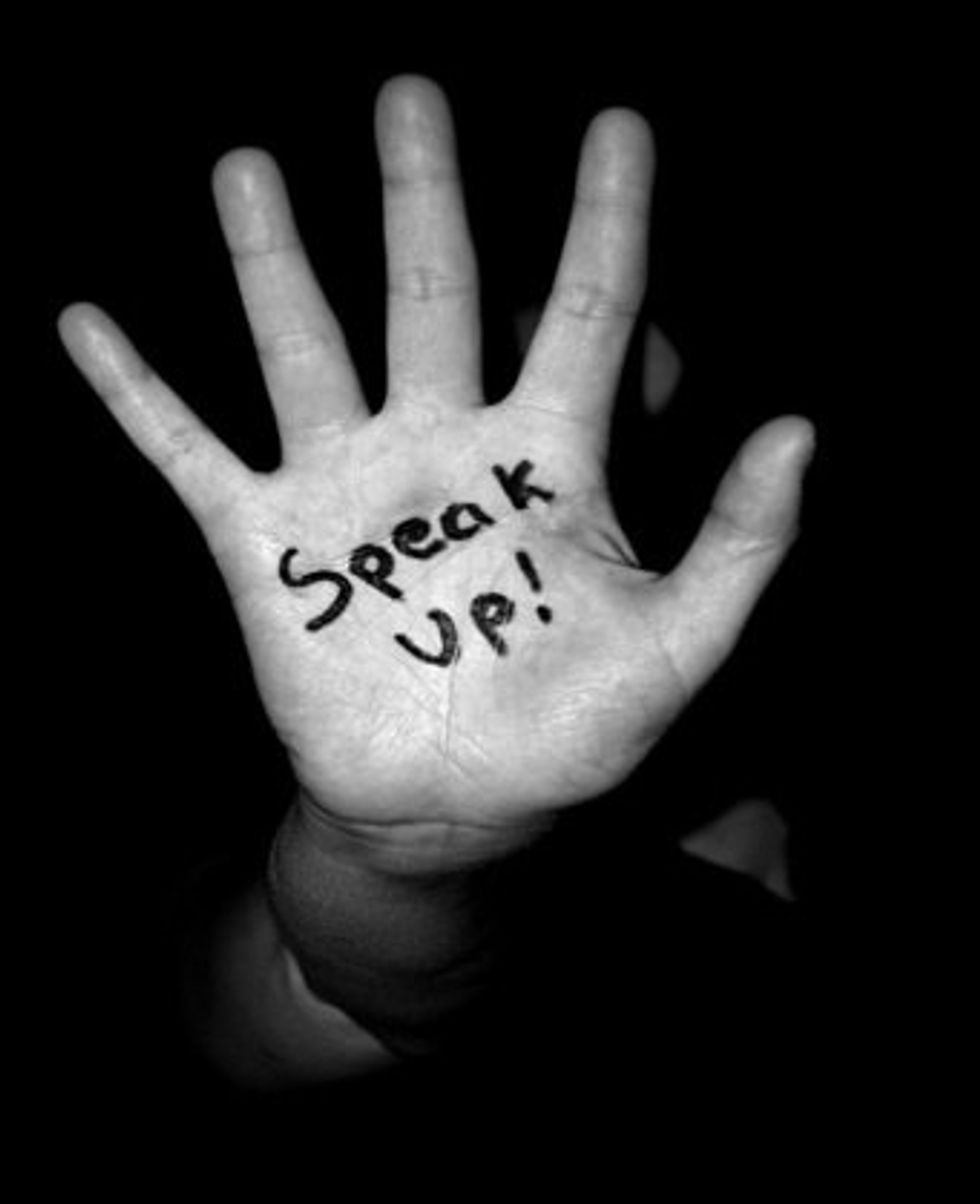Recently, I stumbled upon a writer, artist, sociocultural critic, and speaker's website by the name of Zahira Kelly. She was born in New York City, and was raised between Puerto Plasta, Dominican Republic, and the Bronx. Kelly runs an advice column for TheNewInquiry.com, and she is the creator and author of an AfroLatina feminist blog, called Bad-Dominicana, as well.
Zahira Kelly recently created the new, trending hashtag, #MaybeHeDoesntHitYou. The purpose of this hashtag personally for Kelly was to bring awareness to the many forms of abuse people experience, apart from just physical. When she decided to tweet using this hashtag, she did not expect for it to trend with so many people, both men and women.
Zahira Kelly told BBC Trending that, "Abuse is often seen as very cut and dry, and only physical. For several years now on social media, on a daily basis I talk about many different forms of abuse and what they look like."
I decided to dig deeper into the sensitive meaning of this hashtag, and pinpoint the forms of abuse that are not acknowledged quite as much as physical abuse is. I soon discovered that emotional abuse is not taken as seriously as it should be nor is it defined well in today's society. I then decided to interview both men and women, varying from ages 18 to 60, to decipher whether or not the term emotional abuse is actually well-understood. Also, I took it upon myself to request that the participants answer a series of questions related to this form of abuse specifically. Those questions are as follows:
1. What is your definition of emotional abuse?
The most popular answers were along the lines of, "talking down on someone or belittling them, calling them names, manipulating their mind, and breaking their spirit verbally."
However, people fail to realize that emotional abuse can be categorized as psychological abuse, and can even correlate with mental abuse. A few participants defined this term by assuming emotional abuse can only occur in an intimate relationship, such as girlfriend and boyfriend, but that is false. An individual is experiencing emotional abuse if someone (it does not matter who it is) is causing them to feel isolated, intimidated, or diminishes their sense of identity, dignity or self-worth.
2. Have you ever experienced emotional abuse in your past relationship(s)?
"No. Because I do not let that happen. If I sense that is coming, I try to leave." This was by far my favorite answer from the group, but unfortunately, not everyone sees it coming. Approximately 75% of the people I interviewed said they, indeed, have experienced emotional abuse in their past.
Some people do not even know they are emotionally abusing someone, that is why it is best to keep a close eye on the people whom you surround yourself with. Two of my participants, both male, ages 22 and 60 revealed that they themselves have emotionally abused someone before.
3. Are you currently experiencing emotional abuse in your present relationship?
Fortunately, most of the participants answered this question with a very confident, stern "No." However, one female participant, age 20, admitted that she is being emotionally abused by her significant other. This proves that emotional abuse is a thing, and it is happening.
4. Do you feel like you are the same person you were before you entered that abusive relationship?
It is no secret that I expected everyone to answer "no" to this question, simply because based on the definition alone, it seems as if emotional abuse definitely can affect a person and their behavior. 90% of the participants can say they are not the same person they were before the abuse. Some said they changed for the worse, and others for the best.
5. Have you ever told any of your immediate family members or close friends about the abuse you have experienced?
Around 58% of my participants kept the abuse they were experiencing a secret.
6. Have you suffered from depression or low self-esteem (due to your experience with emotional abuse)?
Only 25% of the people interviewed could say they did not suffer from depression or low self-esteem.
7. Do you ever feel angry or spiteful towards the person who emotionally abused you?
"Nope. They're not worth it and they never were. I don't have that type of hatred over people. I only wish them the best and change for their future relationships." This answer came from a younger female participant, age 18.
"Yes! I wish I can tell whomever she is with right now about her manipulative personality." This answer came from a male participant, age 20.
This is common; one person may still feel angry, while the other has decided to move on and forget about the abuse they endured. Everyone handles these situations differently.
8. If you could hurt that person, would you?
9. Why or why not?
All of my participants said they would not bring any harm to the people who abused them, either because it is not in their character, their physical pain could not amount to the emotional pain they caused or because they do not wish to face karma.
10. Which do you think hurts a person worse: emotional or physical abuse?
A female participant, age 54, said "Emotional abuse, because that is in your mind and it lasts longer. It hurts worse. The pain from physical abuse goes away." This was a common answer among the people I interviewed.
Although the effects of emotional abuse or physical abuse on a person can vary, it is safe to say that abuse is abuse, the form in which it comes does not matter. None of it is okay and it should never be tolerated. If you or someone you know may be experiencing abuse of any sort, I would urge you to report it immediately.
In conclusion, I applaud Zahira Kelly for bringing awareness to other forms of abuse and creating the #MaybeHeDoesntHitYou hashtag. Physical abuse may be more noticeable, but emotional abuse is real, and it does hurt. Not all wounds are visible.




























